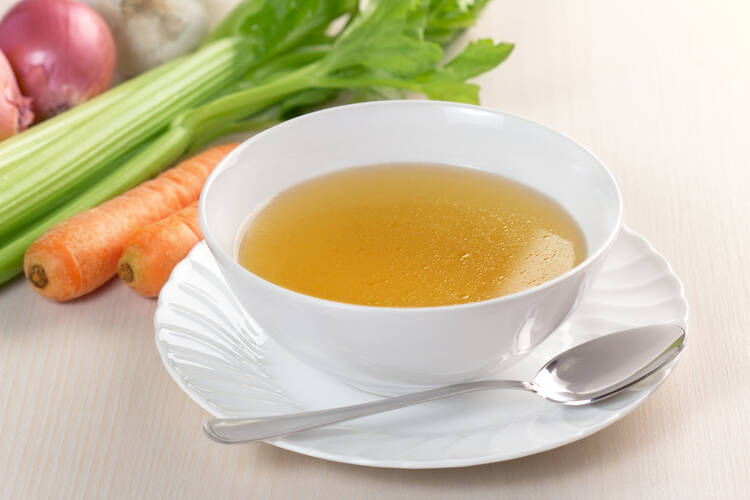Before my conversion to Catholicism, I was a dabbler in New Age practices, as well as a keen user of Instagram. I was often swept up in trends that promoted “wellness,” an umbrella term for various diets, types of exercise, meditation, pseudo-religious philosophies and even skin care products.
These trends can have certain surface similarities to religious belief. Healthy eating gurus, for example, might use the phrase “clean eating” to describe eating foods that are natural and unprocessed. The choice may be a healthy one, but the phrase can imply that those who do not or cannot make these same diet choices are, by default, unclean or impure. It is a distinction that can bring shame along with the implication that they have fallen short in observing a moral code.
This phenomenon of modern trends masquerading as religion was explored in depth by the theologian Tara Isabella Burton in her excellent book Strange Rites: New Religions for a Godless World. Before I had read Ms. Burton’s book, however, I had already noticed that crystals, yoga, veganism, tarot cards and other aspects of New Age spirituality were entering mainstream life and being promoted by social media influencers—all of whom seemed to be attractive, thin and young white women, using words and phrases like “manifestation,” “self-care” and “living your truth.”
As churches struggle with declining membership, the wellness industry is redefining the concept of purity as what you consume, rather than as the moral state of your soul
Their carefully curated cheerfulness masks the wellness industry’s encouragement of public shaming and one-upmanship. In 2019, Yovana Mendoza, who had claimed to eat only uncooked vegan food, was caught on video enjoying cooked fish at a restaurant and was subsequently hounded for days on social media for this transgression. After she was “canceled” by her fanbase, she posted a 33-minute video admitting that she had reintroduced eggs and fish to her diet after suffering serious health problems, like missing her periods for two years.
The experience of vegans being hounded online after changing back to a conventional diet have been repeated several times with other former vegan influencers, including those who have been more forthcoming about the change. But this should not be surprising: Influencers like Ms. Mendoza could never have accumulated their large followings if aspirational young women did not have a visceral desire for “purity,” in this case a kind of purity that can be attained through diet and that comes with the side effect of thinness.
[Harry Potter, Soul Cycle and the Internet: Say Hello to America’s New Religions]
It is a remarkable coup. As churches struggle with declining membership, the wellness industry is redefining the concept of purity as what you consume, rather than as the moral state of your soul. It is also commodifying purity by making it an expensive lifestyle choice.
This is not the first time the concept of purity has been twisted beyond its original Christian meaning. The “purity culture,” driven by fundamentalist Protestant dominations in the United States that over-associated purity with sexual behavior, have already distorted the true meaning of purity beyond recognition. In these groups, the rules of what constitutes pure behavior are so stringent that many former members report that they are still unable to talk about sex or even enjoy sex within their marriages.
Equating “purity” with chastity left couples confused and anxious about how much affection and intimacy they could enjoy before marriage. Some have run to the opposite extreme, seeing what the Catholic Church categorizes as sexual immorality as acceptable or even good. Polyamory is no longer scandalous; it is a lifestyle choice. Adultery has been destigmatized to the point where there are apps available to facilitate it.
Therapy may be good for your mental health, and diets good for your body, but the sacrament of confession is still the way toward purity for your soul.
Purity seems to have an inherent attractiveness to people even as what we desire to keep “pure”—the body, the mind, the soul—continues to change. So, wellness grifters of every shape, size and creed have popped up to fill the void created by a disappearance of spiritual richness from daily life. They have come up with new ways to work out, new meditation apps, new sticks of incense with which to purify your home and myriad other means, often tactlessly appropriated from other cultures, to plug the holes left by the decline of traditional religions.
But this new use of the word purity to describe only the material world feels hollow. There may be some ritual comfort in collecting crystals or forgoing meat, but they are not substitutes for paying attention to our souls. I don’t know a single woman who would prefer to be married to an adulterous vegan husband than a faithful husband who consumes the occasional hamburger.
In its worst form, wellness purity allows us to escape from our own moral impurity rather than make a genuine attempt to be a better person. Buying and consuming organic fruit smoothies is expensive, but it’s easy. Making an earnest attempt to confront one's own moral failings and to be held accountable for them is challenging and uncomfortable—even if the financial cost is almost nothing.
The challenge for contemporary Catholicism is to reclaim ground that has been ceded to the wellness industry. Maybe embracing the virtues of confession as a form of self-care might do the trick? After all, sin hurts our relationships with God and those around us. Therapy may be good for your mental health, and diets good for your body, but the sacrament of confession is still the way toward purity for your soul.








